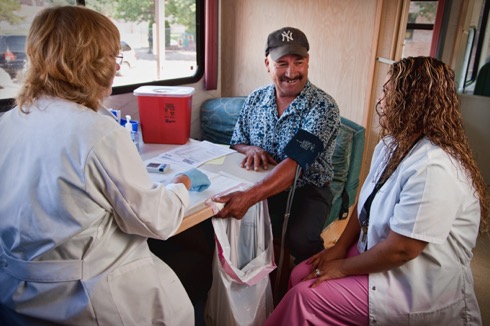
The Graduate Scholar Series highlights Scholar awardees who have graduated from our program by successfully obtaining extramural funding. These interviews share their research, progress, words of wisdom, and how the program has been beneficial to them.
Bryant England, MD, is an Assistant Professor in the Department of Internal Medicine Division of Rheumatology at the University of Nebraska Medical Center. He is also a recipient of the 2018 Great Plains IDeA CTR Scholar Award. Get more information on his study HERE.
GP IDeA-CTR: Can you briefly explain the nature of your study?
Bryant England: I aimed to determine what factors drive multimorbidity (the presence of multiple chronic conditions) and to derive novel measures of multimorbidity in rheumatoid arthritis that could advance clinical care and research.
GP IDeA-CTR: How did the Scholar’s Program help you?
Bryant: The scholars program provided the support in terms of time, funds, and resources that allowed me to conduct this study. Furthermore, through this award I was able to learn new analytic techniques and expand my collaborative research team. While many aspects of the program were very helpful, most important was having the protected time to get my research career launched. It is crucial early on to have time to generate your preliminary data, publish your initial findings, build your research team, and prepare subsequent grant applications
GP IDeA-CTR: What funding did you receive and how will it help move your research forward?
Bryant: I am funded by a VA Career Development Award to study the management of rheumatoid arthritis-associated lung disease. This is a specific type of multimorbidity that has a particularly poor prognosis. Through this study we hope to advance our understanding of the disease course and effects of different immune therapies in this challenging condition.
GP IDeA-CTR: Any words of wisdom for future Scholars?
Bryant: Hit the ground running! Getting off to a quick start allows you to begin generating the preliminary data, building your publication record, and provide you more time at the end to be preparing your next grant proposal. It also gives you a cushion in case unexpected challenges (such as a global pandemic) pop-up.
GP IDeA-CTR: What impact will your studies have on communities in the near future?
Bryant: As a field we recognize the growing burden of multimorbidity, but we struggle to adequately assess and manage multimorbidity because we do not have adequate measures. Our novel measures help to address this gap while also highlighting rheumatoid arthritis as a condition that deserves special attention in terms of multimorbidity assessment and management.
GP IDeA-CTR: What sort of results have you seen in your study so far?
Bryant: We have found that multimorbidity frequently occurs in rheumatoid arthritis and may even accompany or precede the onset of rheumatoid arthritis. Moreover, we have identified the primary patterns of multimorbidity in rheumatoid arthritis: cardiopulmonary, cardiometabolic, and mental health & chronic pain multimorbidity. Novel measures we have developed capture these distinct multimorbidity patterns.



